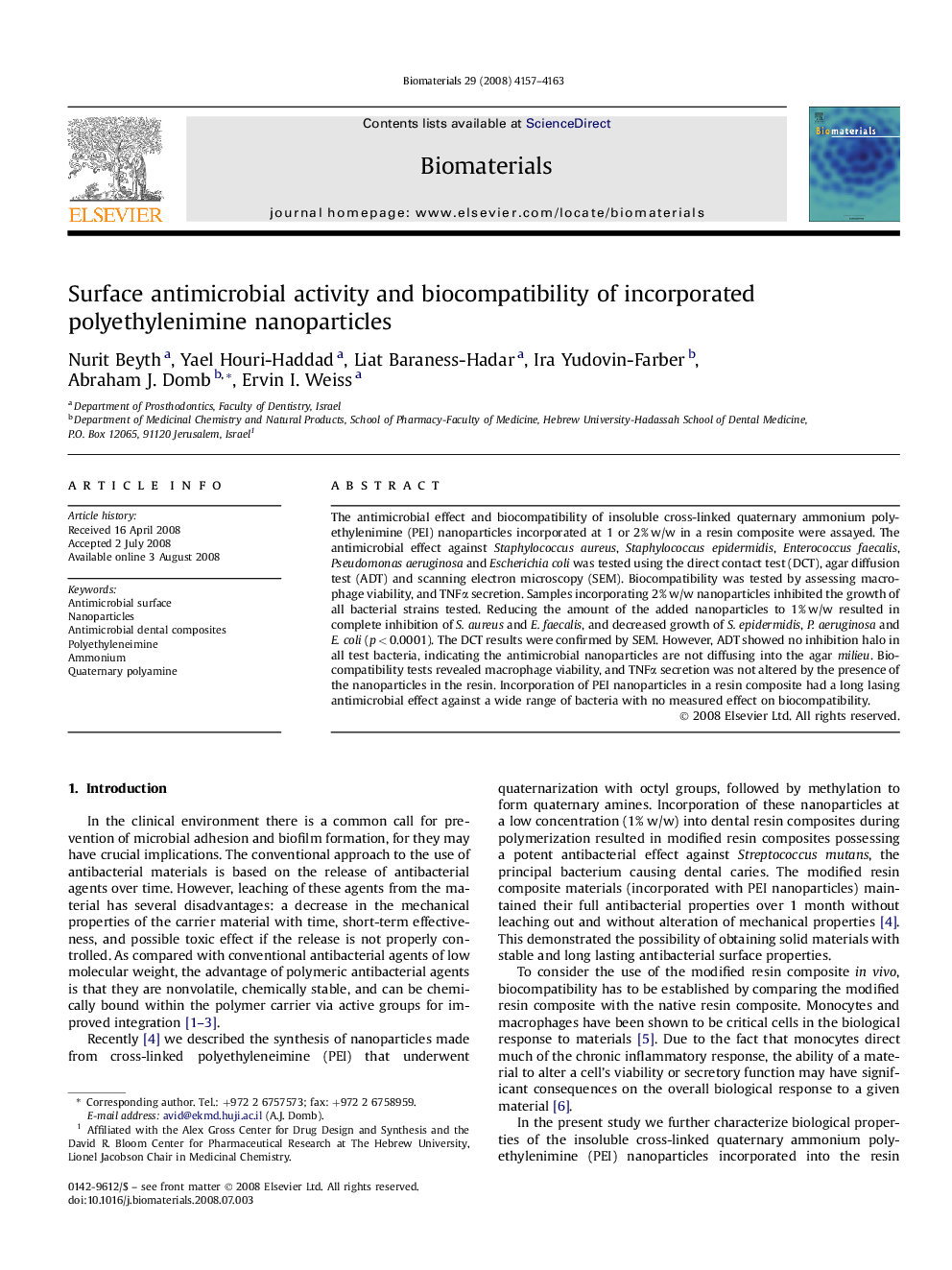| Article ID | Journal | Published Year | Pages | File Type |
|---|---|---|---|---|
| 9300 | Biomaterials | 2008 | 7 Pages |
The antimicrobial effect and biocompatibility of insoluble cross-linked quaternary ammonium polyethylenimine (PEI) nanoparticles incorporated at 1 or 2% w/w in a resin composite were assayed. The antimicrobial effect against Staphylococcus aureus, Staphylococcus epidermidis, Enterococcus faecalis, Pseudomonas aeruginosa and Escherichia coli was tested using the direct contact test (DCT), agar diffusion test (ADT) and scanning electron microscopy (SEM). Biocompatibility was tested by assessing macrophage viability, and TNFα secretion. Samples incorporating 2% w/w nanoparticles inhibited the growth of all bacterial strains tested. Reducing the amount of the added nanoparticles to 1% w/w resulted in complete inhibition of S. aureus and E. faecalis, and decreased growth of S. epidermidis, P. aeruginosa and E. coli (p < 0.0001). The DCT results were confirmed by SEM. However, ADT showed no inhibition halo in all test bacteria, indicating the antimicrobial nanoparticles are not diffusing into the agar milieu. Biocompatibility tests revealed macrophage viability, and TNFα secretion was not altered by the presence of the nanoparticles in the resin. Incorporation of PEI nanoparticles in a resin composite had a long lasing antimicrobial effect against a wide range of bacteria with no measured effect on biocompatibility.
